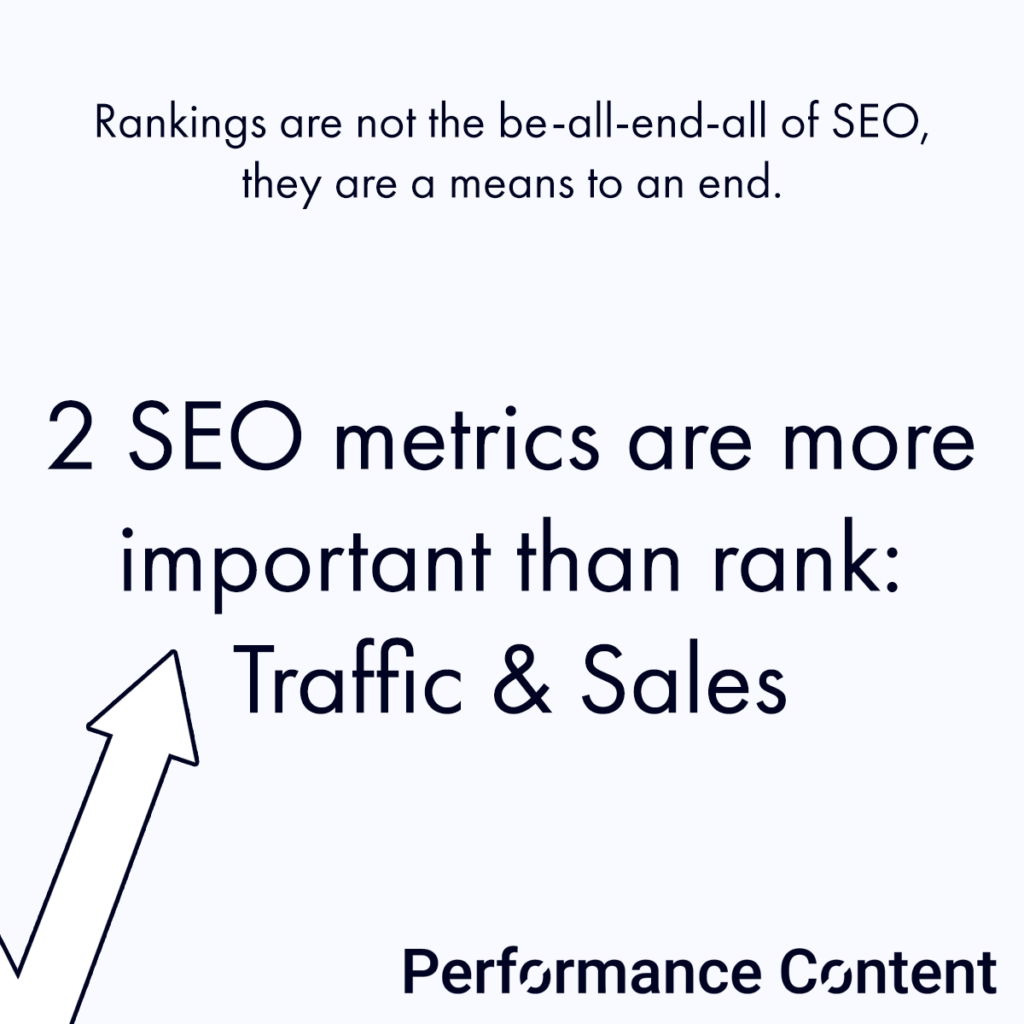
Many SEO professionals and analytics tools focus on rankings. Open your monthly report or log into your SEO dashboard, and you’ll likely be greeted with some form of a position tracker. There’s nothing wrong with that, but rank alone isn’t the most important metric for SEO.
In fact, two metrics are more important than rank: organic traffic and sales (or leads, subscriptions, etc.).
Consider these two scenarios:
- A page ranks #1 for a search term that gets 1,000 monthly searches
- A page ranks #5 for a search term that gets 10,000 monthly searches
Many factors impact results – audience targeting, search intent, where buyers are in the funnel, on-page copy, etc. – but if we break these scenarios down to base value, we might assume the following results based on average click-through rate by position and a modest 1% conversion rate:
| CTR | Traffic | Sales | |
| Scenario 1 A page ranks #1 for a search term that gets 1,000 monthly searches | 39% | 390 visitors | 4 (3.9) |
| Scenario 2 A page ranks #5 for a search term that gets 10,000 monthly searches | 5% | 500 visitors | 5 |
These scenarios illustrate how a lower-ranking page can outperform a higher-ranking page in traffic and sales. A #5 ranking for a high-volume search term is more valuable than a #1 ranking for a low-volume search term. Of course, a #1 ranking for a high-volume search term is even better, but that’s beside the point, which is:
Many companies promise top rankings, but ranking #1 for keywords no one searches won’t help your business grow. Traffic and sales will.
This isn’t to say you shouldn’t strive for #1 rankings – you absolutely should, because you’ll get more traffic and (likely) more sales than pages that rank below yours. However, it does mean that you shouldn’t evaluate SEO success on ranking alone. Instead, you should measure its overall impact on your business, and organic traffic and sales are the best metrics for that. Rank is only a means to those ends.